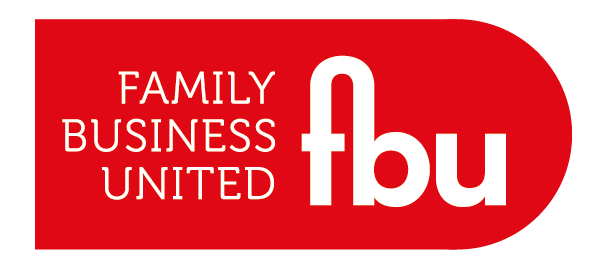We began the year with an article on finding out what is at the heart of commitment. We are apt to make wishes at the start of the year in the form of New Year’s resolutions and hope that they will come true. In his article, Nick suggested a way to make time for listening for and hearing these wishes, Alice has reviewed the value in looking back at things we’ve already achieved and areas we’ve already grown into, and Matt has framed some useful thoughts and methods for setting goals towards actioning our wishes.
To make a wish often suggests having a desire for something and hoping for it, but assuming it probably won’t happen. When we think of a genie we see a guardian spirit – the one who grants wishes – right? It turns out that the word genie is closely related to the word genius – also a guiding spirit, however this one is found within each of us when we are born and expressed as our own natural talents and abilities.
To be resolute about something means to break it into parts, to loosen and undo it, to dissolve and soften it, so that something final and absolute can be attained and where no doubt remains. It means to hold firmly to a clearly defined purpose. The idea of wishing is developed to something more purposeful and considered, in the form of a resolution.
But how do we stay accountable to that resolution? I would like to explore accountability a little more. Have you noticed how there are different ways of being accountable? For example, we can be accountable to ourselves, we can be accountable to other individuals, we can be accountable to groups, such as our work teams or families, and then we can be accountable to the wider communities and environments that we are part of. All these ways require us to shift the methods we use to express being accountable. We can be accountable on a personal level and we can be accountable in a professional capacity and often we have to negotiate both of these ways of being at once. To say that these are ‘ways of being’ means that they are actions we take in a conscious way and behaviours we exhibit and that these are visible to others and have outcomes.

To account means to think, consider or compute and is closely associated with the idea of reckoning. Reckoning develops the idea that accounting for something means to answer for actions, recount and relate in a clear and open way. Reckoning an account means settling an account. In the profession of accountancy there is a requirement of the profession that individuals practicing accountancy are impartial, unbiased, and transparent in their dealings. This transparency requires that the accountant’s behaviour can be observed and evaluated, their behaviour must be justified and that all people involved in any transaction with them, are communicated with clearly and wholly.
There is a lot to consider when actioning our resolve!
Matt has shown us how to set personal goals when we want to be accountable to ourselves, but how do we manage this differently when we are in a group setting? To be accountable in this context means to choose to contribute to the group, effectively, without falling back on blaming the behaviour of others when things go wrong, or by setting ourselves apart in the name of impartiality. There may be parts of our role, if we work together professionally, that require impartiality, but we will need to bring other relational parts of ourselves to the table to cultivate successful communication and an ability to find consensus within disagreement. We need to be able to contribute both styles of behaviour for success.
Furthermore, the transparency mentioned above creates a feeling of fairness in how processes operate and this in turn supports each person’s accountability to the group. This transparency can be actioned through clear rules about how meetings are run, how decisions are made, how rewards and remuneration are allocated, how power is allocated, how difficult conversations are had, how training and development is applied, how strongly shared vision and values are supported, how strongly interdependent relationships are valued, how strategy is applied and who is responsible for roles and actions and the measuring of results against these actions.
There is a particular need within family business for strong and clearly defined policies and procedures to support those who stand as leaders alongside other family members who are not direct decision makers. This provides the building blocks of trust for everyone involved and removes the influence of personal and emotional expectations between individuals. Family members work towards set principles and integrity, rather than against perceived unfairness.
There will always be times when family matters come up against business issues and the family must have a forum for discussing these matters which will help family members, who are also leaders of the business, observe business boundaries. In this instance family members who work within the business are responsible for their behaviour towards family members, to family and non-family colleagues and to shareholders equally. They are responsible for providing ways for all family members to develop their knowledge about the business, so that they can choose to work in the business, or have ownership, or opt out entirely. These decisions can only be made through the responsible, competent, and successful sharing of information and ideas.
The responsibility of leadership is firmly based in relationships of trust. Leaders often blame their teams when mistakes are made and express an inability to trust the team. However, this leader is often not aware that the team has also lost trust in them. This is because the leader has not created the environment that supports curiosity and a problem-solving mindset in the face of failure. The team has no sense of opportunity, motivation or purpose. Personal responsibility automatically follows high motivation. The team would feel a commitment to themselves, each other, and their leaders if the leaders were able to allow for the vulnerability of learning. High performing teams work to solve problems when they occur because they want success together and they feel a positive responsiveness from the leader, which is aligned with issues that arise. This is very different to the individual who works to hide mistakes because they are only motivated to avoid their boss’ wrath or to save their job.
To be responsible to others requires us to first be responsible to ourselves and our own commitments. Like a cascade, what flows from you, flows into everything you touch. You are an influence through your commitments and your relationships.
Can you be trusted to deliver at home, at work, in your community? Can you hold the vulnerability that is required to take risks, to fail, to communicate challenges that you face and to accept new perspectives and new information? As a leader, do you cultivate an environment that creates the conditions for each person to want to express responsibility and to be resolute in their actions through their own genius?




